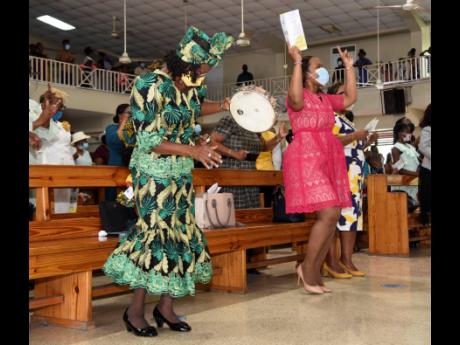Direct 11th-graders to community colleges, Troupe tells schools
Ministry says not asking principals to make blood out of stone for Pathways Programme
As concerns continue to swirl over the Sixth-Form Pathways Programme (SFPP) scheduled to start in the next four months, Jamaica’s chief education officer is calling for principals to direct outgoing 11th-graders they cannot accommodate to the...
As concerns continue to swirl over the Sixth-Form Pathways Programme (SFPP) scheduled to start in the next four months, Jamaica’s chief education officer is calling for principals to direct outgoing 11th-graders they cannot accommodate to the nearest community colleges.
Acknowledging that “we are not asking you to make blood out of stone”, Dr Kasan Troupe has urged the complaining principals to tap various available avenues, adding that the SFPP was not geared to put them under undue pressure.
“Don’t be overburdened or overwhelmed by trying to accommodate the entire grade 11 cohort. That is not possible physically in terms of your infrastructure,” said Troupe in a Gleaner interview on the sidelines of the national Child Month service at Eastwood Park New Testament Church of God in St Andrew on Sunday.
“Just map the students. Let them do their pre-registration for the instrument that we have sent out to all schools for the pre-registration to be done, and let us hand over that information to the tertiary institutions.”
The SFPP initiative forms part of the Ministry of Education and Youth’s implementation of a seven-year high-school programme, with outgoing 11th-graders expected to enrol in two-year courses, with alternative opportunities alongside the traditional sixth-form curriculum.
The SFPP will be facilitated in all public secondary schools, along with 24 private and 10 public tertiary institutions.
Troupe said that the Ministry of Education and Youth has already audited tertiary institutions, arguing that there is enough space to support 11th-grade graduates. She has pressed for further dialogue among stakeholders on the matter.
“In our high schools, we do admit as a Ministry of Education that, physically, we are challenged, but God has blessed Jamaica with a tertiary sector that has spaces sitting down in this country and children are nowhere,” said the chief education officer.
Troupe has sought to allay the concerns especially raised by the Ecumenical Education Committee, a bloc representing the interests of church-run schools.
That committee has flagged the SFPP and its timeline as unfeasible. The source of their angst includes space, resources, financing, and the Government’s pledge for budgetary assistance.
“The ministry document outlining the SFPP gives the main reason why only 35 per cent of the students completing grade 11 transitioned to a sixth-form programme as ‘the fact that most secondary schools do not have the physical capacity to accommodate their full grade 11 cohort at grades 12 and 13’,” the statement read.
“The SFFP, as announced, makes no provision for addressing the space problem for September 2022, which will obtain if any of the 65 per cent are retained in the institutions, many of which are already at capacity or over capacity. There is also the need for satisfactory provision of additional furniture and equipment.”
Troupe has said that the Government will offer a subvention to assist school administrations with the surge in student population, but principals have repeatedly said that the proposed funding is insufficient and unsustainable. Some have claimed proposed financing of as low as $17,000 per student.
However, she said that, while infrastructure will take longer periods for build-out, the Government could fund subsidies.
“The exam subsidy is a part of the programme for our students. We have accommodated for that. So those resources are in place, so it’s not about a tuition matter. It’s about the additional resources that are bigger than the tuition that we have committed to, and those things will be rolled out for the new school year,” Troupe told The Gleaner.
The new programme will offer three learning pathways for students. These are (1) the traditional pathway comprising the Caribbean Advanced Proficiency Examination (CAPE), a certificate and/or associate degree, or Council of Community Colleges of Jamaica/University Council of Jamaica (CCCJ/UCJ) accredited associate degree; (2) the technical pathway – Caribbean Secondary Education Certificate/Caribbean Advanced Proficiency Examination (CSEC/CAPE), National Council on Technical and Vocational Education and Training/Caribbean Vocational Qualification (NCTVET/CVQ) Level Two or Level Three; and the general pathway – CSEC, City & Guilds, and NCTVET Level Two.

